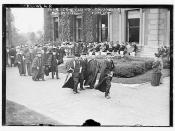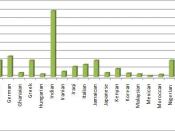Butler '95 notes that young female British Asians negotiate their associations with traditions and religion e.g. adopting Western ideas about education and careers whilst retaining some respect for traditional religious ideas about the role of women.
Johal '98 focuses on second and third generation British-Asians and note that they have a dual identity where they inherit an Asian identity and adopt a British one. Which involves the adoption of hyper-ethnicity where they incorporate a 'white mask' enabling them to interact with white peers whenever necessary, highlighting cultural or religious difference. The term selective cultural preference refers to the position British-Asians have which allows them to move between one cultural form and another.
Modood found that many second generation South Asians saw themselves as in a 'bi-culturalism' despite the problems caused by racism.
As young Asians, especially Muslim youth, assert their religious identity, usually in defensive reaction to racist actions, there are increasing tensions in some parts of the UK, including increasing tensions between ethnic minority groups e.g.
Muslims and Hindus rarely mix socially.
Generational conflict may arise when some ethnic minority children come into contact with their white peers and want to adopt western values with regard to education, marriage etc which may conflict with ethnic minority parents values, e.g. 20% of Asians marry outside their race. A.k.a culture clash.
Mix marriages amongst African-Caribbean and whites continue to increase, e.g. 50% of black men have white partners.
Evaluation Ethnic identity will be influenced by social class and race.
Butler found that young female Muslims were generally happy with the way Islam treated women.
Generational conflict over arranged marriages is probably exaggerated by the white media.





